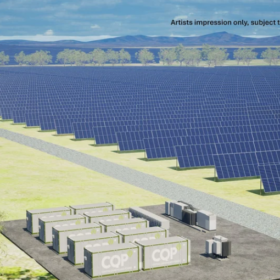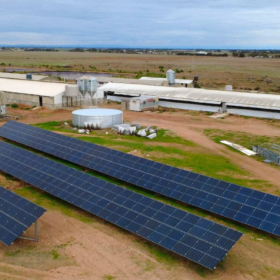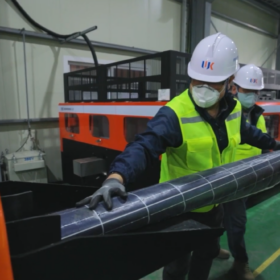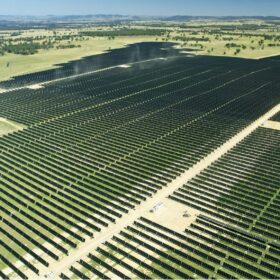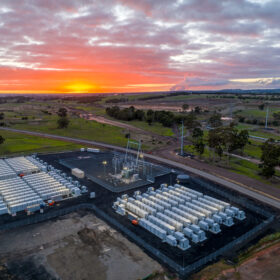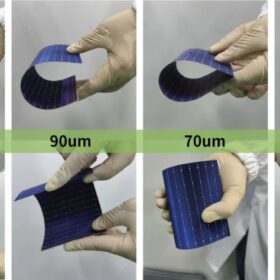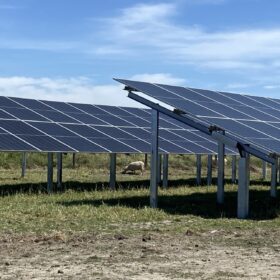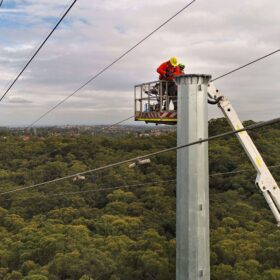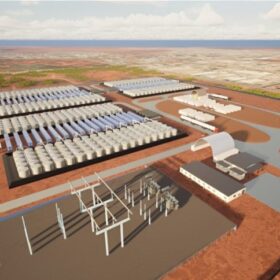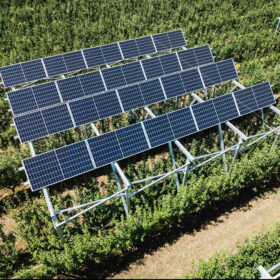CQP seeks approval for its Wooderson 450 MW / 3.6 GWh solar and BESS project
Central Queensland Power has submitted its 450 MW solar and 450 MW / 3.6 GWh Wooderson Solar Development hybrid project in the Gladstone region for federal EPBC approval.
Energy hungry South Australian piggery goes off grid with 100 kW solar array
South Australian remote and off grid clean energy specialist MyEnergy Engineering has completed an off grid 100 kW solar and 256 kWh battery system for a large-scale energy hungry piggery, north of Adelaide.
Livium ships end-of-life panels to South Korea for critical mineral recovery
Recycling solutions company Livium has for the first time shipped 600 end-of-life solar panels to South Korea, where a strategic partner, Won Kwang S&T will validate their proprietary technology for large-scale solar panel recycling.
$5.1 billion investment in utility-scale solar and wind forecast for 2026
United Kingdom-headquartered energy analyst company Bloomberg New Energy Finance has forecast Australia is likely to see $5.1 billion in investment in utility scale solar and wind in 2026, though wind will account for 95% of the total.
Engie buys out Eku to achieve 100% ownership of Hazelwood BESS
French energy company Engie has acquired London-headquartered Eku Energy’s minority stake in Engie’s 150 MW / 150 MWh Hazelwood battery energy storage system in Victoria.
Australian-made perovskite cell manufacturing gets boost with new MOU
Next-generation solar innovator Halocell Energy is set to benefit from the development of a sovereign supply chain for high-purity precursors to perovskite after signing a memorandum of understanding with Queensland advanced materials company Lava Blue.
Ideal Energy commissions AI-enabled flexible HJT pilot line for space
China-based PV equipment supplier Ideal Energy Sunflower Semiconductor has completed an AI-enabled pilot line for ultra-thin, flexible heterojunction solar cells, targeting lightweight power systems for space and near-space applications.
CleanPeak buys 25 MW solar and 100 MWh battery storage projects in NSW
CleanPeak Energy has acquired five new solar farm and battery energy storage system development sites across New South Wales from Fortitude Renewables, which are expected to produce 90 GWh of energy per annum.
Engie lights up Big Bash Leagues stadium with accredited GreenPower
French energy giant Engie will power all four Big Bash League cricket matches at the Engie Stadium, at the Sydney Olympic Park with government accredited GreenPower, starting 20 December 2025.
1 GW transfer capacity unlocked by existing Hunter region network upgrades
Electricity distributor Ausgrid will unlock 1 GW of transfer capacity from the Hunter-Central Coast Renewable Energy Zone by upgrading its existing distribution poles and wires, instead of building of building new ones.

